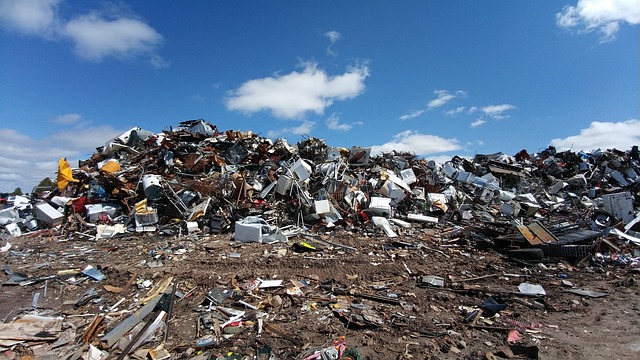ASTM D2974 Organic Matter in Hazardous Waste
The ASTM D2974-18 standard test method is a critical tool used to determine the organic matter content of hazardous waste. This test is essential for ensuring compliance with environmental regulations and for understanding the composition of hazardous materials that require proper disposal or treatment.
Organic matter in hazardous waste can be highly variable, influenced by factors such as source, handling methods, and storage conditions. ASTM D2974 provides a standardized approach to quantifying this organic content through combustion analysis. The test involves combusting the sample under controlled conditions and measuring the weight loss, which directly correlates with the amount of combustible organic material present.
The process begins with proper sampling and preparation of the hazardous waste. This step is crucial as it ensures that the sample accurately represents the characteristics of the entire batch or unit being tested. Samples are typically collected using appropriate containers designed to prevent contamination from external sources. Once collected, samples undergo preliminary examination to ensure they meet the test requirements.
The combustion process itself involves incinerating the sample at a specified temperature range (typically around 750°C). During this process, volatile organic compounds are converted into gases and non-volatile components remain as ash. The weight difference between the initial sample mass and post-combustion residue provides an accurate measure of the organic content.
It is important to note that ASTM D2974 is not just a laboratory exercise; it has real-world applications in various sectors including chemical manufacturing, pharmaceuticals, and waste management. For instance, in the chemical industry, understanding the organic matter content helps in optimizing processes and ensuring product quality. In pharmaceutical production environments, accurate knowledge of contaminants can prevent potential health risks.
- Chemical Manufacturing: Ensures compliance with regulatory standards
- Pharma Production: Identifies potential contamination issues early on
- Waste Management: Aids in proper disposal and treatment methods selection
The results from ASTM D2974 are invaluable for quality managers, compliance officers, R&D engineers, and procurement teams who need reliable data to make informed decisions. By adhering to this standard test method, organizations can demonstrate their commitment to environmental stewardship while also meeting legal requirements.
Furthermore, the precision of ASTM D2974 makes it suitable for research purposes where accurate quantification of organic matter is necessary. Scientists and researchers often rely on these tests when studying the effects of hazardous waste on ecosystems or developing new treatment technologies.
At Eurolab, we pride ourselves on delivering top-tier services that go beyond mere compliance. Our expertise in ASTM D2974 Organic Matter testing ensures accuracy and reliability every time. Here are some key advantages of choosing us:
- ISO/IEC 17025 Compliance: We adhere strictly to international standards, ensuring our results are valid and trusted worldwide.
- State-of-the-Art Equipment: Our laboratories are equipped with cutting-edge technology that guarantees precise measurements and repeatable results.
- Experienced Technicians: Our staff comprises highly trained professionals who possess in-depth knowledge about hazardous waste analysis.
- Comprehensive Reporting: Beyond just numbers, we provide detailed reports that interpret the data for easier understanding by non-technical stakeholders.
- Rapid Turnaround Times: We understand the importance of timely results and strive to deliver them quickly without compromising quality.
- Customized Solutions: Whether you need one-time testing or ongoing monitoring services, we can tailor our offerings to fit your specific needs.
With Eurolab, you gain more than just a laboratory service provider; you get partners committed to helping you achieve regulatory compliance and operational excellence.
Why Choose This Test
Choosing ASTM D2974 Organic Matter in Hazardous Waste testing is pivotal for several reasons:
- Regulatory Compliance: Ensures adherence to local, national, and international environmental regulations.
- Risk Management: Identifies potential risks associated with organic contaminants that could impact human health or the environment.
- Process Optimization: Helps refine manufacturing processes by providing insights into raw materials used in hazardous waste generation.
- Decision Support: Provides robust data to support strategic decisions regarding waste management practices and resource allocation.
- Scientific Validation: Supports academic research projects aimed at improving our understanding of organic matter behavior within different matrices.
- Economic Efficiency: Enables better planning for disposal costs by accurately predicting the amount of hazardous waste generated.
Beyond these benefits, selecting ASTM D2974 also fosters a culture of responsibility towards sustainable practices. By investing in this test method, organizations contribute positively to global efforts aimed at reducing environmental footprints and promoting eco-friendly operations.
Use Cases and Application Examples
- Chemical Manufacturing: Used during process optimization stages to ensure consistent product quality.
- Pharma Production: Assists in identifying contaminants that might affect drug efficacy or safety.
- Waste Management: Guides decisions on appropriate treatment and disposal methods for hazardous waste streams.
- Environmental Research: Supports studies examining the impact of organic matter from various sources on soil, water bodies, etc.
In addition to these sectors, ASTM D2974 finds application in academic institutions conducting research related to environmental science and engineering. It serves as a foundational tool for teaching students about hazardous waste characterization techniques.





